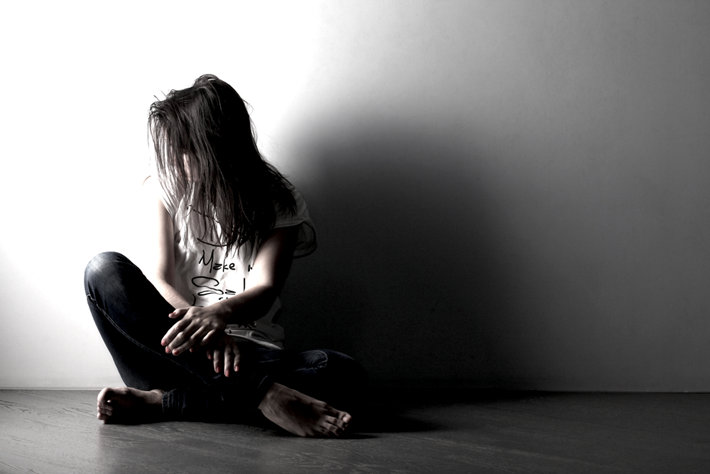Addicted, Alone, and Nowhere to Go—A Guide For Pulling Yourself Out of the Trap

If you or someone you know is addicted to drugs, you are probably no stranger to feelings of loneliness, hopelessness, and overall feelings of total misery and despair. These feelings are totally normal, as addiction is itself akin to the physical universe manifestation of despair.
Dictionary.com defines addiction as: “the state of being enslaved to a habit or practice or to something that is psychologically or physically habit-forming, such as narcotics, to such an extent that its cessation causes severe trauma.“ The derivation of the word is “Latin addictiōn- (stem of addictiō) a giving over, surrender“ So when people fall prey to a drug habit or an alcohol addiction, they often feel as though there is nothing that they can do. They often feel like this is just the end of the line for them, and they feel this way because they despair in not being able to do anything about their drug habit. They know that drug use and alcohol misuse is wrong, but they literally cannot stop.
This is the keynote of addiction. Despair, misery, and hopelessness. However, an addiction to drugs and alcohol does not have to be a death sentence. In the following paragraphs, we’ll go over strategies, tips, do’s, don’ts, and other tidbits of advice on what struggling addicts can do to pull themselves out of the hole that is an addiction.
A Guide for Walking Away from Addiction
- The first step is to not lose hope. There is no such thing as an addict who is too far gone, an addict who is too addicted, or an addict who cannot avail themselves of treatment and break the ruthless chain of addiction for life. Hope is often the only tool that an addict has at their disposal to get them through some of their darkest moments. Hope is the key to taking the first step towards a sober existence.

- One has to make a commitment to getting better. Getting off of drugs and alcohol certainly does not happen overnight, but even just finding help and getting started on getting off of drugs and alcohol is not something that is going to happen overnight. This is why people need to make a commitment to getting clean from drugs and alcohol, and they need to reinforce that commitment every day.
- In one’s commitment to getting sober, this means doing something every day that takes one closer and closer to getting clean from drugs and alcohol. This means putting in the work, putting in the effort, and taking consistent steps towards getting clean. Whether it’s talking to rehab centers, doing research on different treatment programs, working with the family to coordinate rehab, putting together funding for a treatment center, preparing oneself for treatment, scheduling care for children and pets, scheduling time off of work, or any of these other actions, pulling oneself out of the morass of addiction means taking very specific steps towards getting clean every day.
- One has to have and create reasons why they want to get clean, and one needs to reinforce these reasons every day. If we lose sight of the reasons why we want to create a positive change in our lives, then we will stop working for that goal. That is the simple truth of the matter. We have to have daily reasons to get clean, so for that purpose alone we should be writing down and reinforcing why we want to get clean.
- Seek help from others. Getting off drugs and alcohol does not have to be a solo mission. In fact, it shouldn’t be one. When people try to beat a drug habit on their own, they almost always fail. And seeking help from others means a lot more than just going to a rehab center. It also means calling for the support and help, care and assistance of one’s family members, loved ones, and friends. Addiction is best tackled as a group effort, and when one has a support group to turn to when times get tough, their odds of success in recovery are that much greater.

- Move forward always. Last but not least, pulling oneself out of the morass that is an addiction is about making forward movement. Every day, one should be working to take at least one step closer to sobriety, even if it is just a small step. Recovery is possible for anyone and everyone, but it takes consistent, dedicated, forward motion to accomplish this.
- Make sure you acknowledge and take pride in the advancements you make, daily, on your road to recovery. Give yourself an “ATTA BOY” and share your accomplishments with your sober friends and family. Your loved ones will be happy to hear that you are doing better and will help you get there.
People are Dying from Drugs—An Important Note
The above paragraphs act as a guide for helping people to pull themselves out of the trap of addiction to get clean. The following paragraphs show, very clearly, why one must take these actions towards sobriety. If you are addicted to drugs, it is well within your best interests to get off of drugs as soon as possible. This is because drugs are lethal. The truth is, Americans are dying from drugs and alcohol at rapidly increasing rates. When you give in to temptation and use drugs or drink heavily, you are taking your life into your own hands, each time. The sad truth is that tens of thousands of Americans are dying from drugs every year. This is something that we should all be concerned about.
And to make this situation all the more severe, we can trace the increase in the trafficking of opioid drugs into the United States as a direct point of causation for the massive increase in opioid drug overdoses over the last several years. The more drugs that are available in the U.S. to misuse, the more likely Americans are to misuse those drugs. And the more likely they are to experiment with such drugs, the more likely they are to die from them.
Let’s take a minute and observe the rapidly increasing overdose death rate that our nation has been experiencing, just in the last four years. According to the Centers for Disease Control and Prevention:
References listed below were used to gather these statistics.
2014 saw a significant uptick in drug overdose deaths, with more than forty-two-thousand Americans losing their lives to overdoses. Of that forty-two-thousand, more than half of them lost their lives to opioid drug overdoses.
2015 saw an even higher overdose rate. In this year, just over fifty-thousand Americans died because of drug-related causes, with again more than half of them falling prey to an opioid death specifically.
2016, the most recent year for which we have fully tabulated overdose statistics, was the year that ranked the highest yet in overdose death rates that this country has ever seen before. Just over sixty-three-thousand, nine-hundred Americans died from drug overdoses in this year, with more than two-thirds of them dying at the hands of an opioid overdose. Opioids now account for more deaths than all other types of drugs combined. This information is more than a little bit shocking.

Reports for 2017 have not been fully tabulated yet, but the concern is that 2017 will showcase an even higher rate of overdose deaths than what our nation had to experience in 2016. One thing is for certain since the U.S. began experiencing increased opioid trafficking from other countries, more and more Americans have been dying from overdoses on opioids, from accidents caused because of opioid consumption, from opioid drug-related violence or crime, from health problems garnered from opioid consumption, etc.
Information like that really puts things into perspective. We are to a point now where we simply can’t continue to take such flagrant risks with drugs and alcohol. We need to say no to drugs, and we need to get help for those of us who are hooked on drugs, simply out of necessity and simply out of a need to protect our very lives.
Sources:


 ®
®